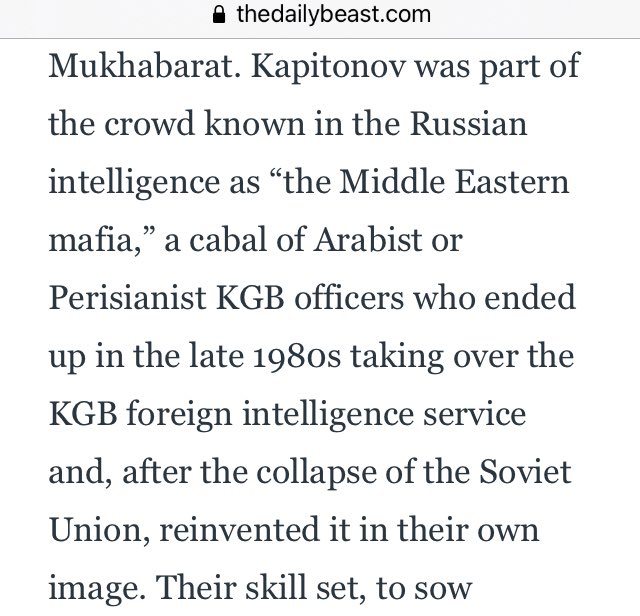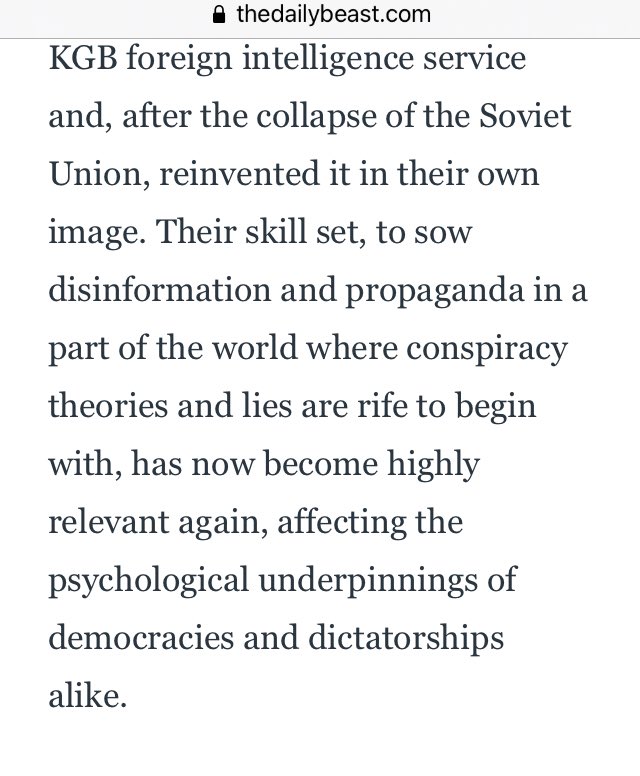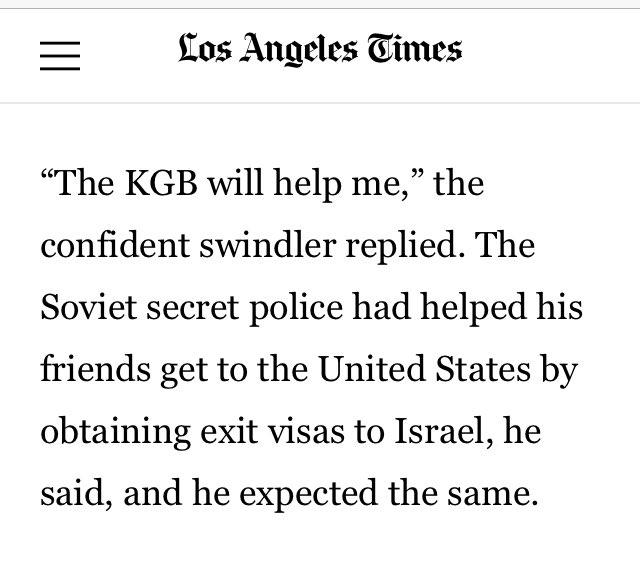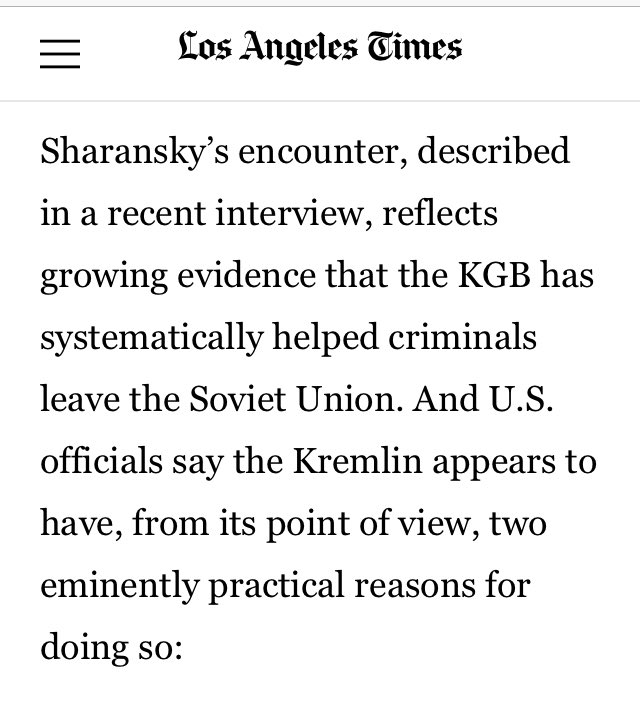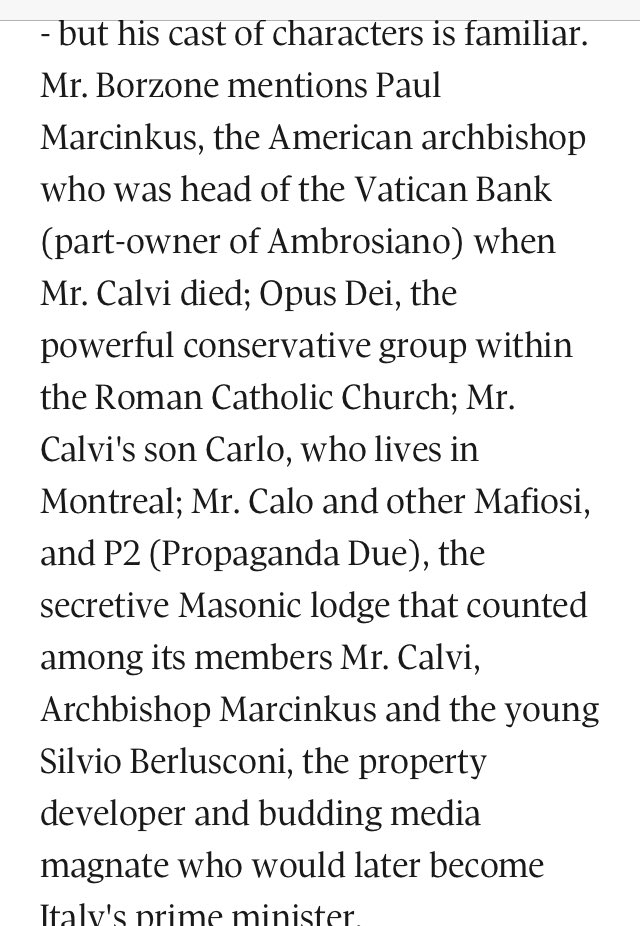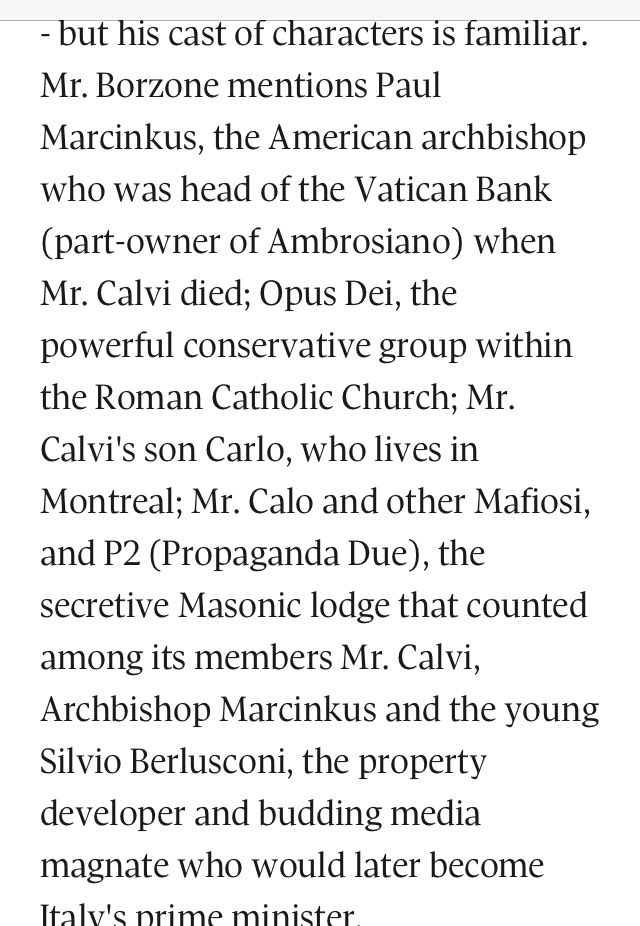
August 1993
Enron and Russia's natural-gas monopoly sign agreement for European markets
upi.com/Archives/1993/…
Enron and Russia's natural-gas monopoly sign agreement for European markets
upi.com/Archives/1993/…
Russian Prime Minister Viktor Chernomyrdin signed an agreement Monday between Russian state gas company Gazprom and U.S.- based Enron Corp. to supply Russian natural gas for European power generation. 
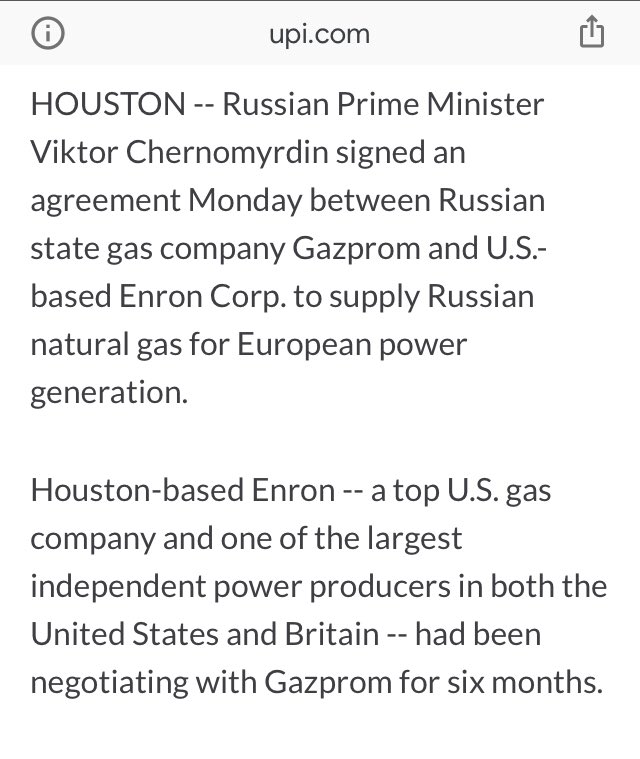
Houston-based Enron…had been negotiating with Gazprom for six months.
The two concerns want to jointly develop power-generation projects using Russian natural gas in European countries.
The two concerns want to jointly develop power-generation projects using Russian natural gas in European countries.
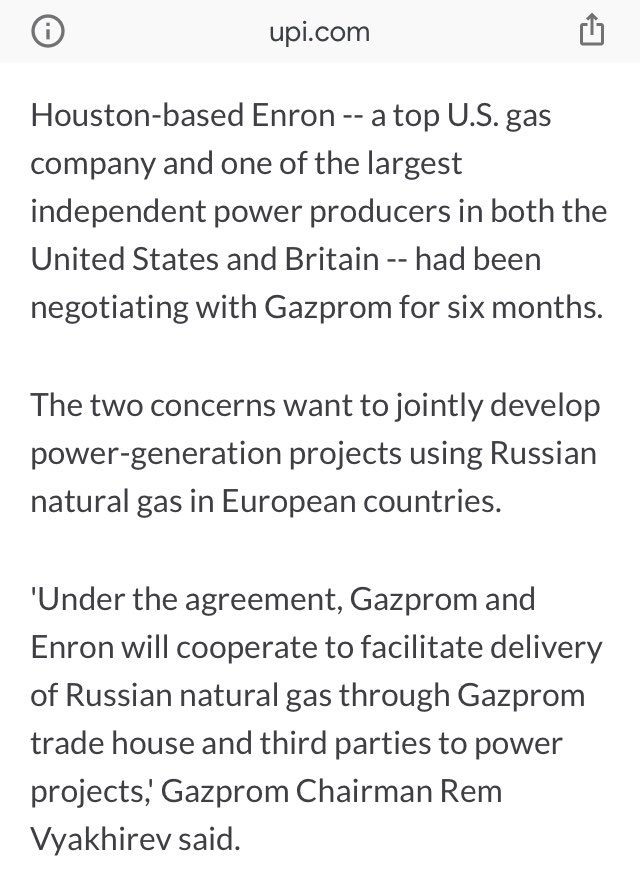
'Under the agreement, Gazprom and Enron will cooperate to facilitate delivery of Russian natural gas through Gazprom trade house and third parties to power projects,' Gazprom Chairman Rem Vyakhirev said. 

Terms of the deal call for Gazprom to deliver gas and offer its expertise in negotiating European gas contracts, while Enron will help evaluate and finance gas sales and power-purchase contracts for independent power projects. 

'Our cooperation under this agreement will begin with the exchange of information about the natural-gas and electric-power markets of Europe in order to identify the most promising opportunities,' Enron Chairman and CEO Ken Lay said. 
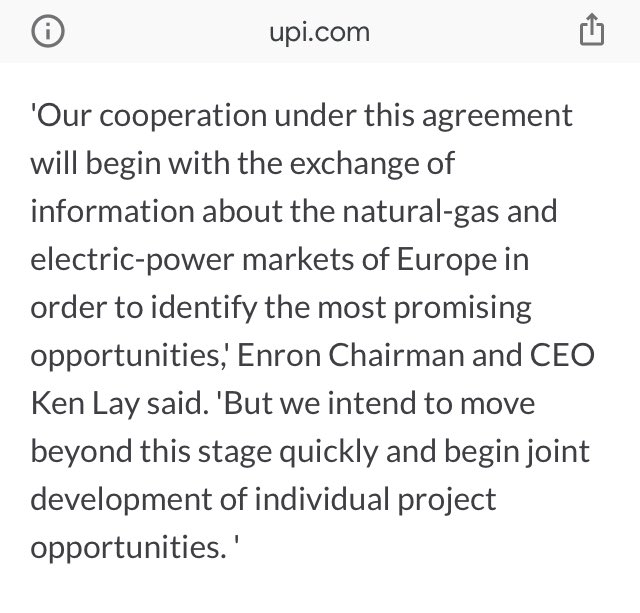
'But we intend to move beyond this stage quickly and begin joint development of individual project opportunities.’ 
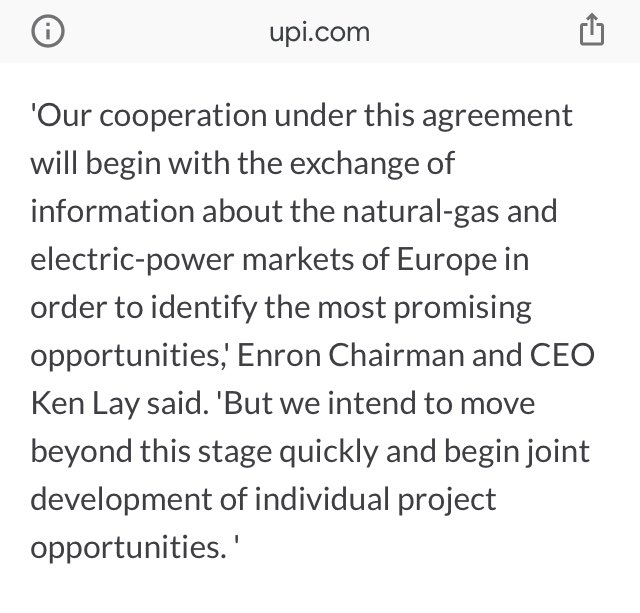
Earlier in the day, Chernomyrdin met with U.S. Energy Secretary Hazel O'Leary for a private working breakfast. Chernomyrdin served as Russia's energy minister and head of Gazprom before becoming prime minister. 
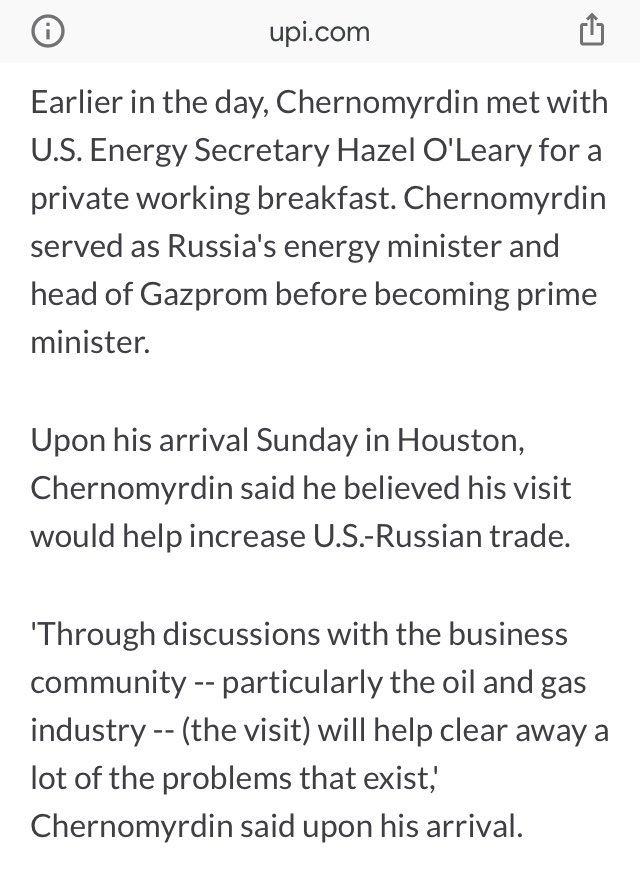
The Russian official's long-awaited U.S. tour includes stops in Houston, Florida and Washington, where Chernomyrdin and Vice President Al Gore co-chair a commission on energy and space. 
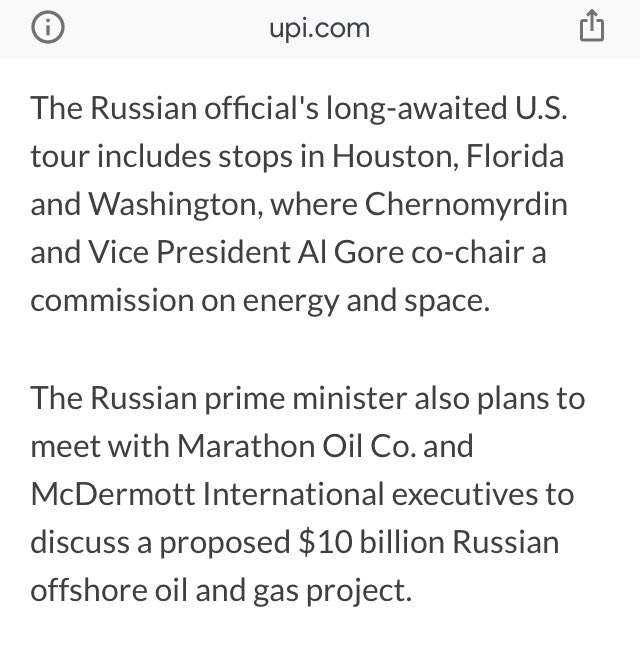
The Russian prime minister also plans to meet with Marathon Oil Co. and McDermott International executives to discuss a proposed $10 billion Russian offshore oil and gas project. 
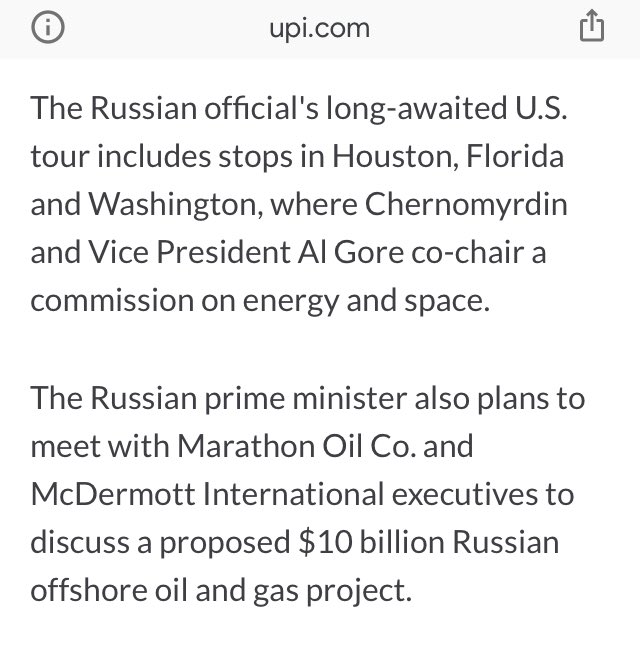
Organizers said Chernomyrdin planned to leave Houston Tuesday for Florida, where his schedule included visits the Kennedy Space Center and a nuclear power plant.
Afterward, the Russian official planned to travel to Washington for meetings with Gore.
Afterward, the Russian official planned to travel to Washington for meetings with Gore.

PricewaterhouseCoopers was plunged into an Enron-type scandal April 15 as a top foreign investment fund in Russia sued it for damages, claiming it had effectively covered up asset-stripping by gas giant Gazprom. 
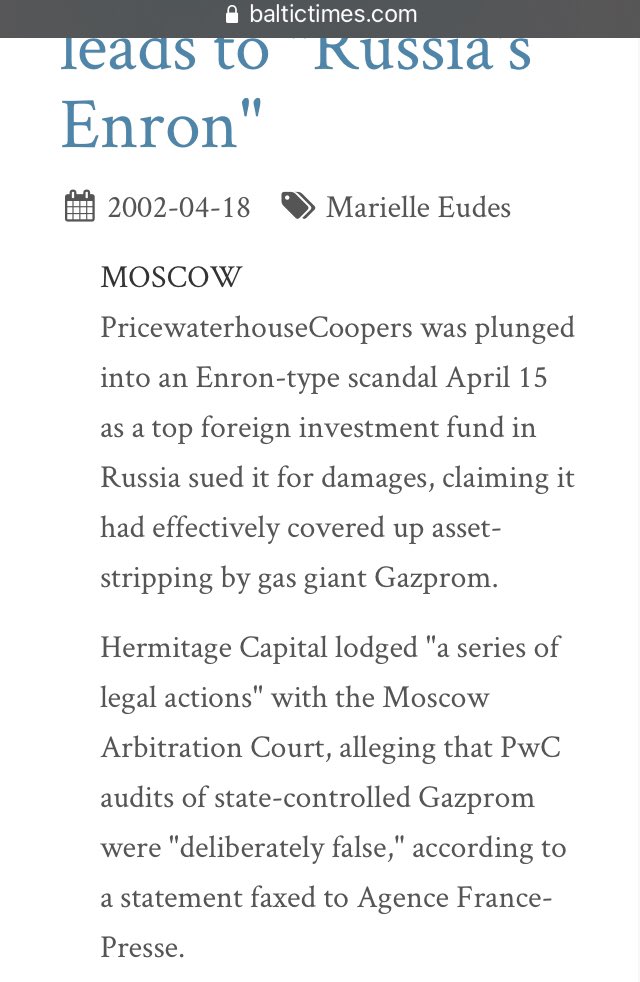
[Bill Browder’s] Hermitage Capital lodged "a series of legal actions" with the Moscow Arbitration Court, alleging that PwC audits of state-controlled Gazprom were "deliberately false," according to a statement faxed to Agence France-Presse. 
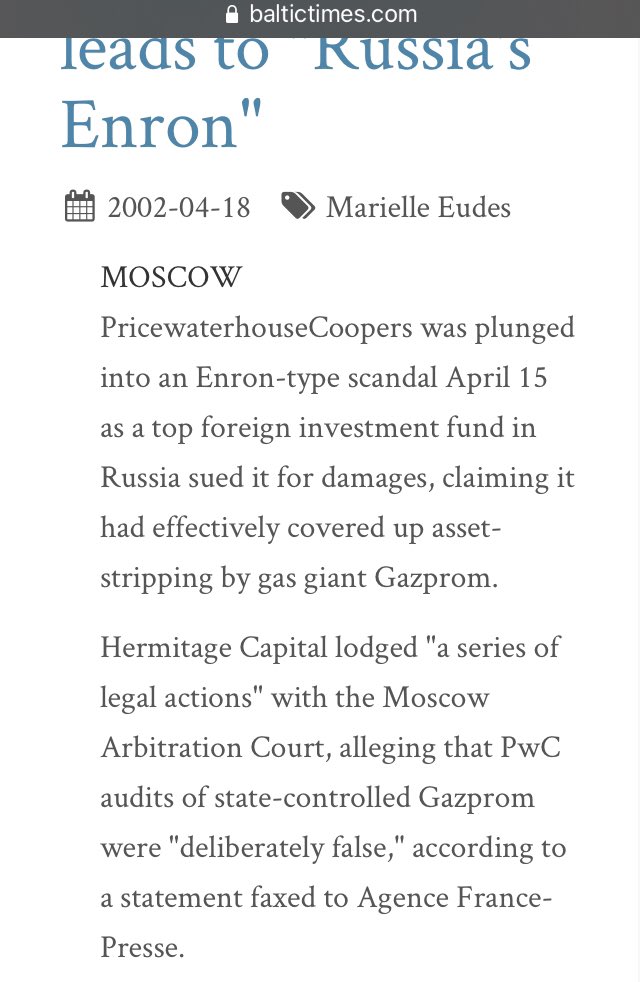
The fund also applied to the Finance Ministry to suspend PwC's audit license in Russia and bar it in the future from auditing Gazprom, the world's largest gas producer. 
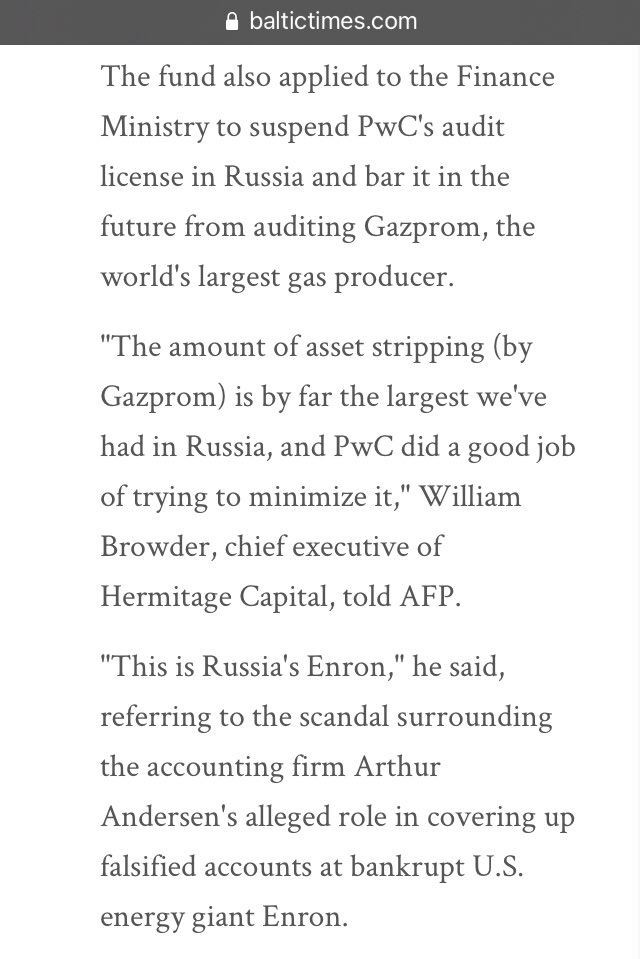
"The amount of asset stripping (by Gazprom) is by far the largest we've had in Russia, and PwC did a good job of trying to minimize it," William Browder, chief executive of Hermitage Capital, told AFP. 

"This is Russia's Enron," he said, referring to the scandal surrounding the accounting firm Arthur Andersen's alleged role in covering up falsified accounts at bankrupt U.S. energy giant Enron. 
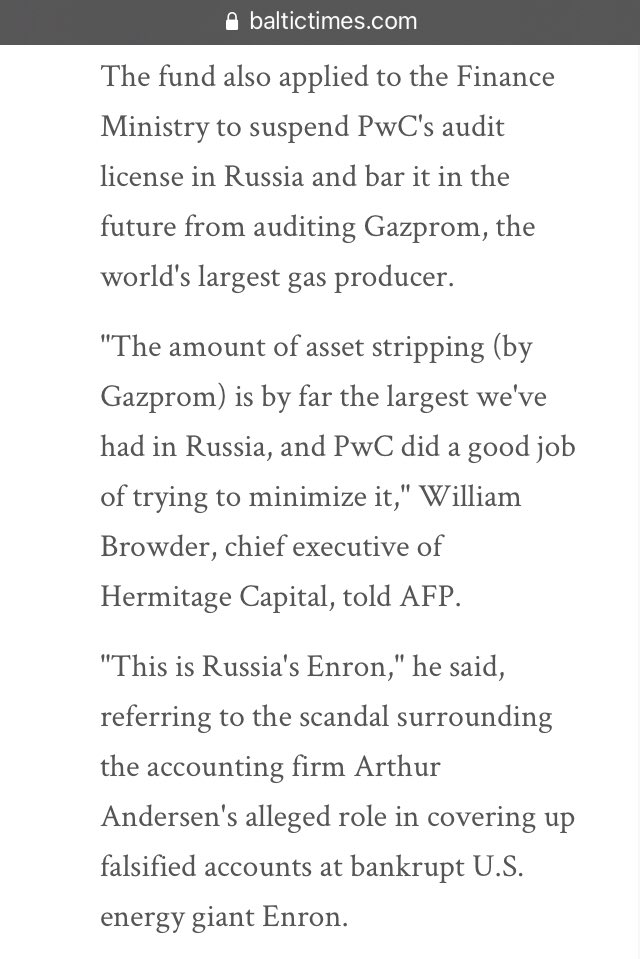
PwC had received $12 million a year in fees from Gazprom for the past five years and 10 percent of the gas giant's assets had been diverted during this time, the lawyer said, commenting on the likely damages he would seek. 
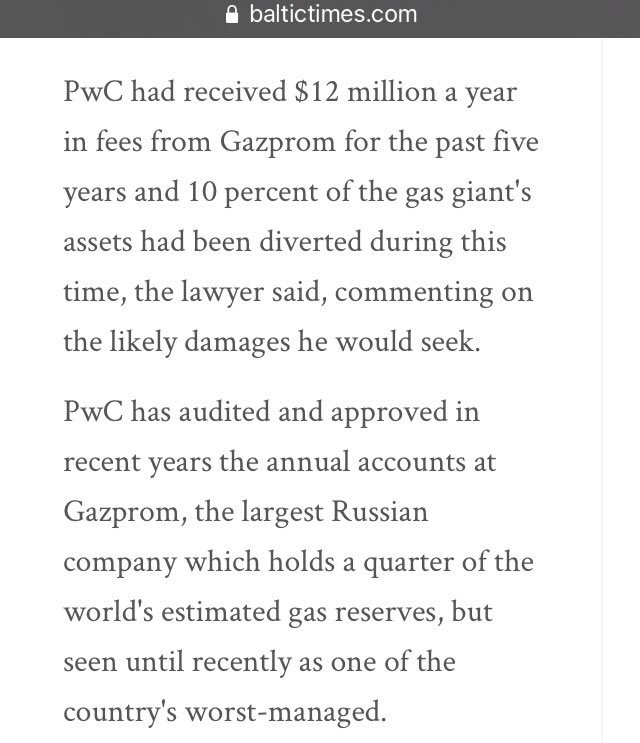
PwC has audited and approved in recent years the annual accounts at Gazprom, the largest Russian company which holds a quarter of the world's estimated gas reserves, but seen until recently as one of the country's worst-managed. 
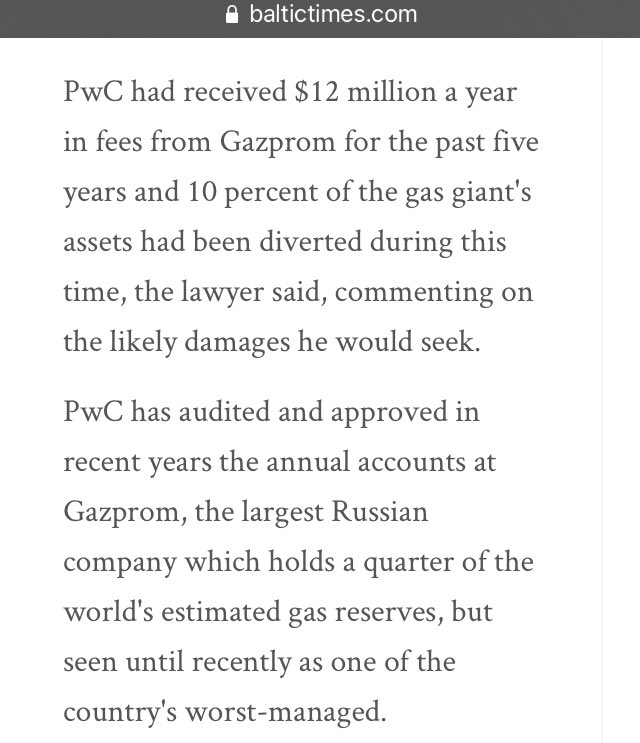
Gazprom minority shareholders accuse the accounting powerhouse of deliberately overlooking several suspect deals conducted between the gas monopoly and its subsidiaries. 
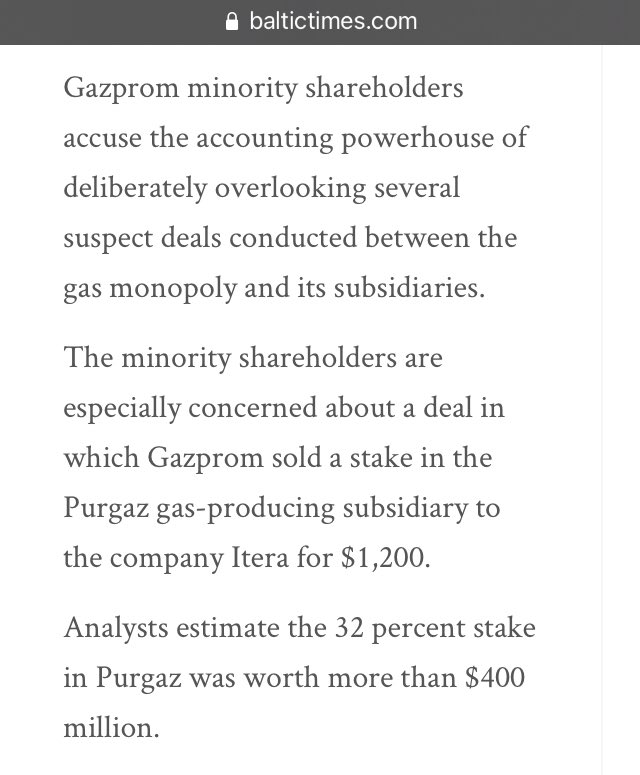
The minority shareholders are especially concerned about a deal in which Gazprom sold a stake in the Purgaz gas-producing subsidiary to the company Itera for $1,200.
Analysts estimate the 32 percent stake in Purgaz was worth more than $400 million.
Analysts estimate the 32 percent stake in Purgaz was worth more than $400 million.
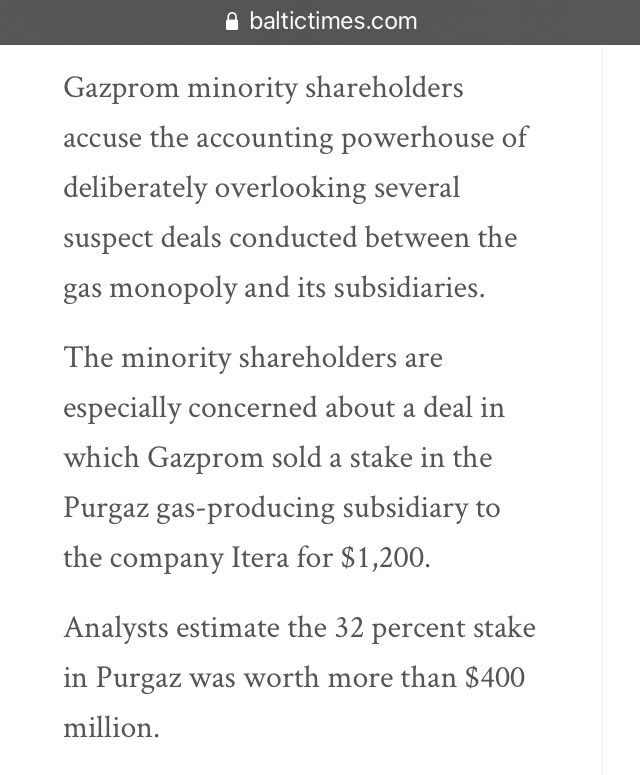
Some Russian media have accused Gazprom officials of setting up Itera as a shell company in which they hid profits from other shareholders, including the state. Gazprom directors deny the charges. 
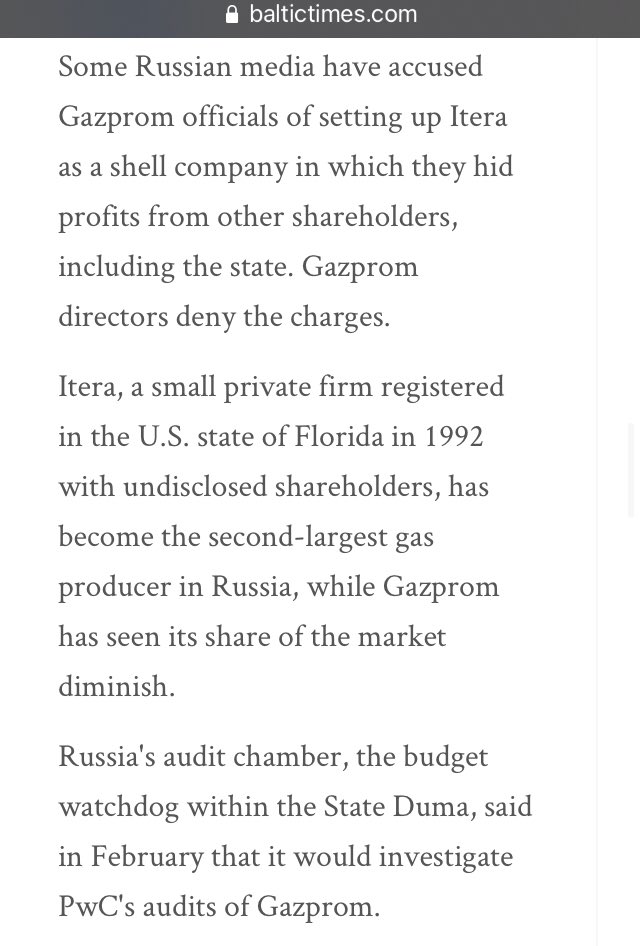
Itera, a small private firm registered in the U.S. state of Florida in 1992 with undisclosed shareholders, has become the second-largest gas producer in Russia, while Gazprom has seen its share of the market diminish. 
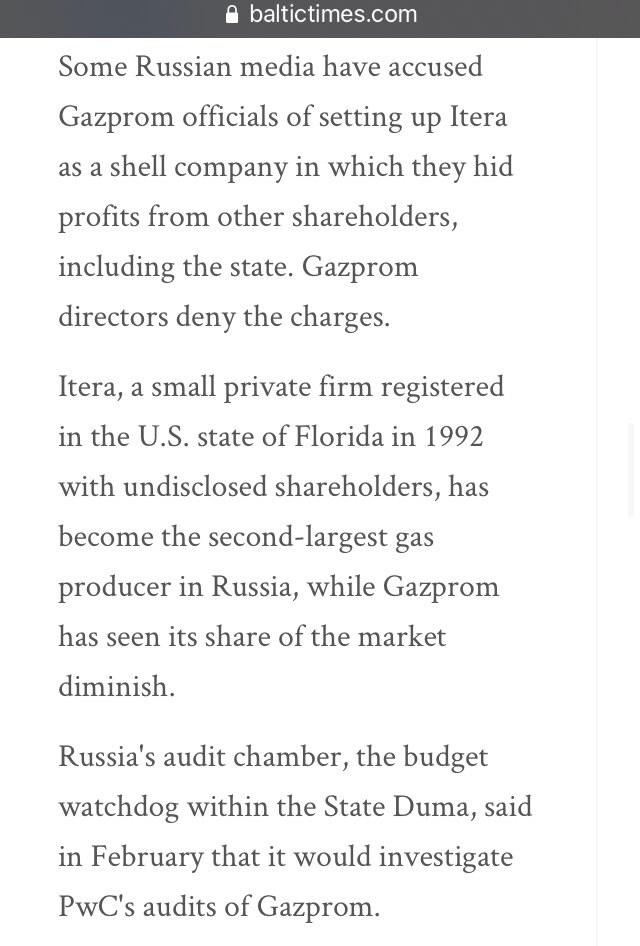
According to Hermitage Capital, PwC concluded that Itera had always fulfilled its obligations to Gazprom, although an audit chamber report showed that Itera had failed to repay $251 million. 
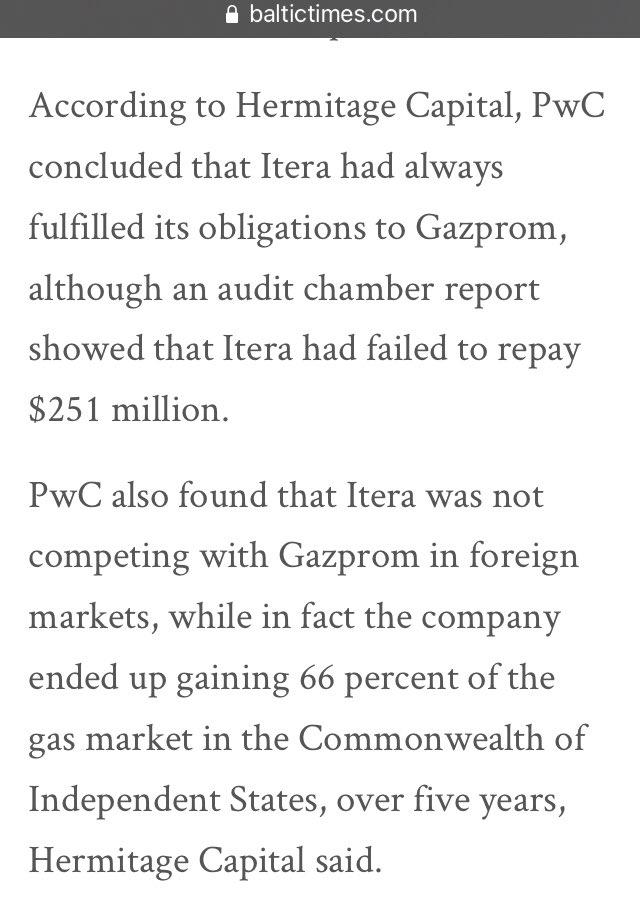
PwC also found that Itera was not competing with Gazprom in foreign markets, while in fact the company ended up gaining 66 percent of the gas market in the Commonwealth of Independent States, over five years, Hermitage Capital said. 
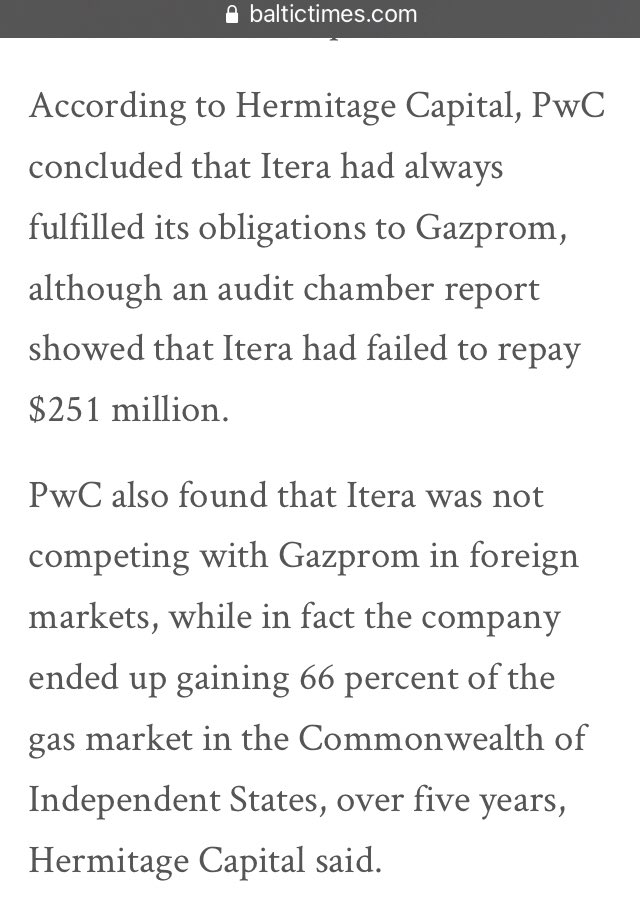
Since spring last year the Kremlin has been clawing back control over Gazprom, once seen as a "state within a state" and in which the Russian government is the main shareholder. 
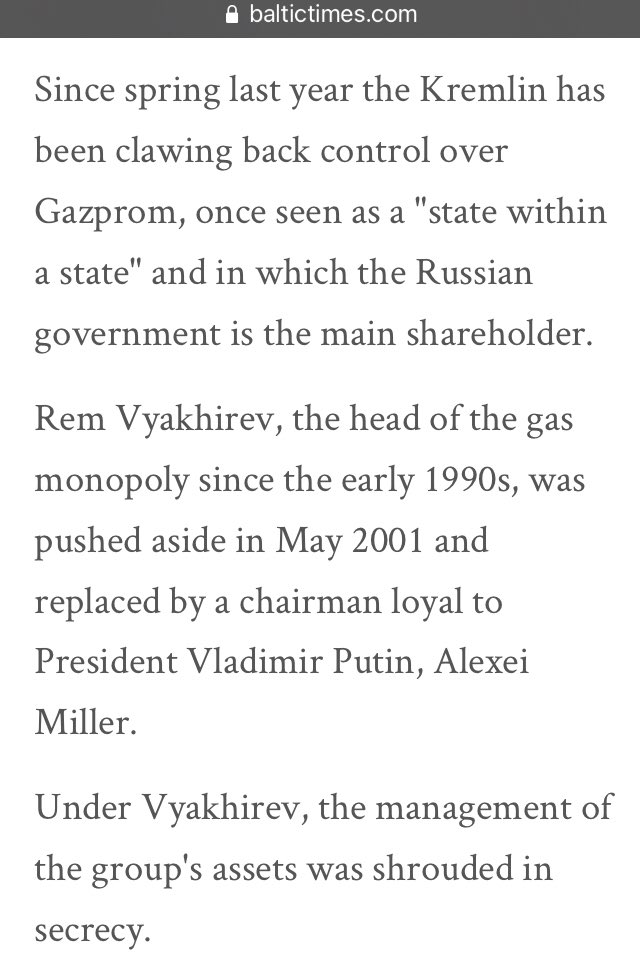
Rem Vyakhirev, the head of the gas monopoly since the early 1990s, was pushed aside in May 2001 and replaced by a chairman loyal to President Vladimir Putin, Alexei Miller.
Under Vyakhirev, the management of the group's assets was shrouded in secrecy.
Under Vyakhirev, the management of the group's assets was shrouded in secrecy.
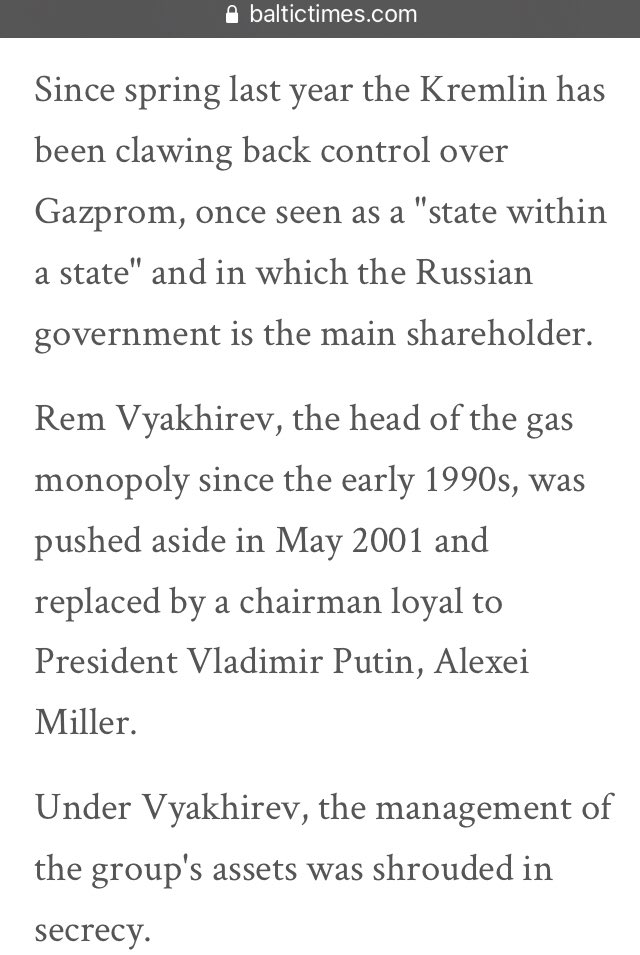
So far here, we have 2 examples of public auditors enabling these frauds; Arthur Andersen with Enron and Price Waterhouse Cooper with Gazprom.
Let’s take a moment to recall that organized crime syndicates (specifically Putin-connected oligarchs) hire the best lawyers, auditors, bankers, and lobbyists to help them develop the legal means to conceal and launder their funds.
https://twitter.com/stringwallapp/status/1389321003419979777
• • •
Missing some Tweet in this thread? You can try to
force a refresh


